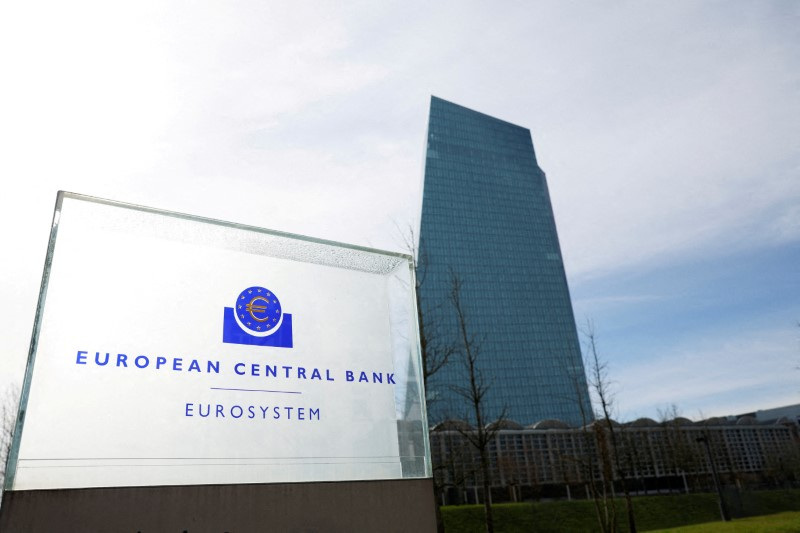FRANKFURT (Reuters) - Low valuations for euro zone bank stocks appear to reflect concerns about credit risk and shareholder payouts, likely weighing on future credit growth via stricter terms for borrowers, the European Central Bank said on Monday.
Bank earnings have surged this year, partly on higher ECB interest rates that allowed lenders to beef up their net interest income, but stock market valuations have lagged behind and many banks appear to be trading at a discount to fundamentals.
"In the long run, this may adversely affect financial stability as banks which are valued by investors at a discount will likely find it more challenging to raise new equity when needed," the ECB said in a Financial Stability Review article.
"Weak valuations translate directly into stricter terms and conditions for finance to the real economy," it added.
The ECB argued that banks' exposure to rising corporate credit risk and the perception of the shares as value stocks play a big part in stagnant valuations.
Fundamentals, however, do not fully account for current valuation and heightened uncertainty about future shareholder payouts may also be playing a part, the ECB added.

Some euro zone governments are now implementing taxes on banks and even the ECB is discussing an increase in unremunerated mandatory reserves, which would reduce earnings.
"The risk of the dividend income stream being taxed affects valuations more strongly relative to growth stocks, which reinvest cash flows internally and are expected to return them to investors in the more distant future," the ECB added.